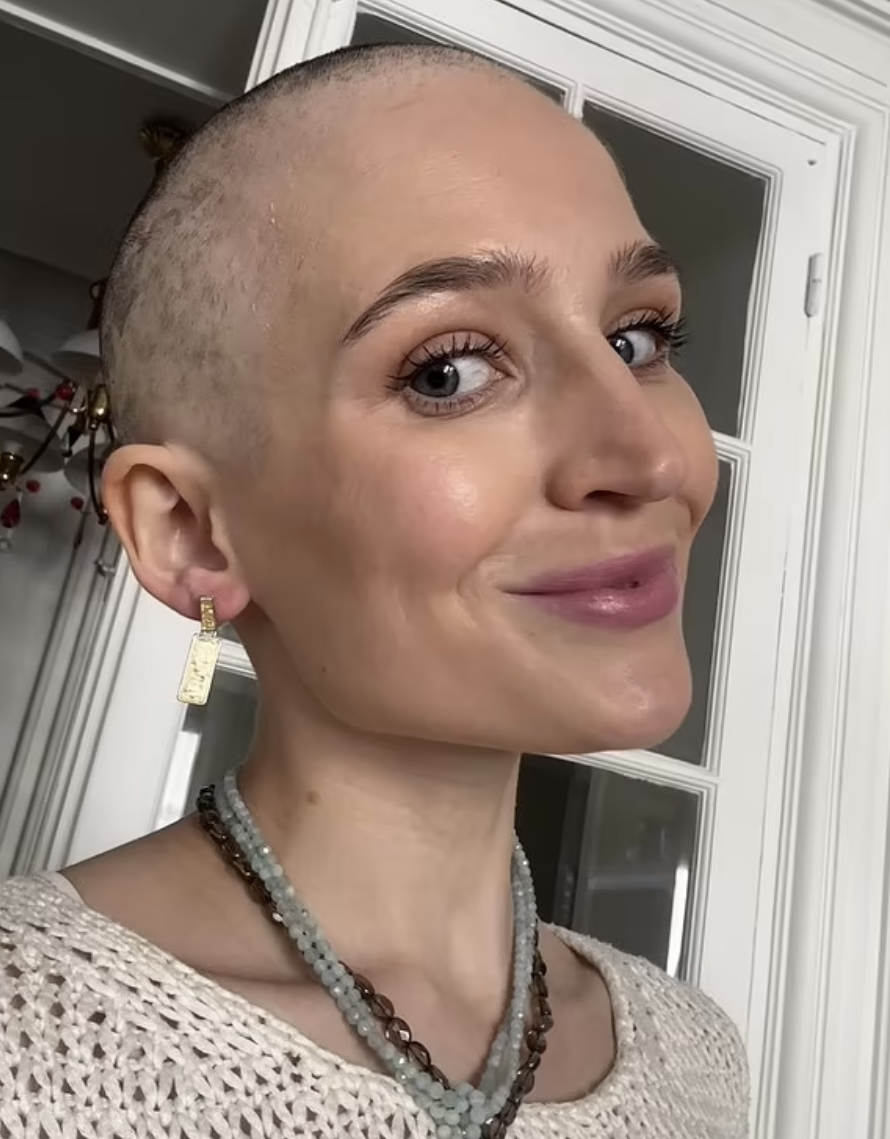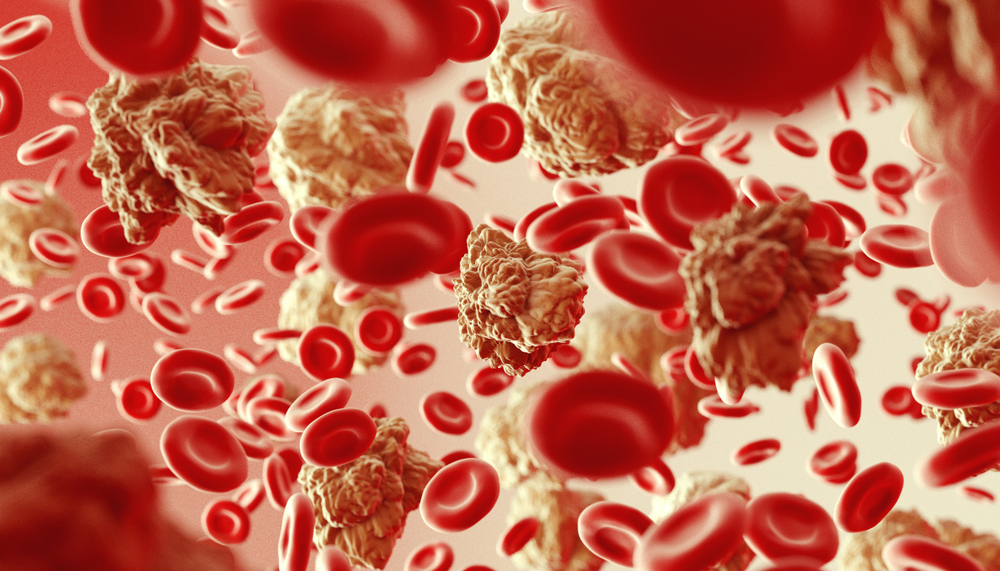Raise your hand if you’ve felt off or unwell and typed your symptoms into ChatGPT looking for answers. Most of us probably have tried this, sometimes with some rather alarming results. The reality is that most of us probably don’t fully believe what the AI search engine is telling us, and certainly if you went to the doctor and said “well, ChatGPT told me…” they’d roll their eyes and remind you that ChatGPT is not a doctor. While that may be true, it doesn’t mean that the AI software is necessarily wrong, either. This is what happened to 27-year-old Marly Garnreiter from France, who initially dismissed the AI chat bot when it told her she might have blood cancer. One year later, it turned out to be right.
A Cautionary Tale of Ignoring ChatGPT

It was early in 2024 and Marly, who lives in Paris, France, was grieving the recent loss of her father, Victor, to colon cancer. She noticed that she was experiencing persistent night sweats and itchy skin, issues that she’d never had before. Marly went to her doctor, but all medical tests came back normal. Her symptoms were chalked up to a physical response to her grief. Still, Marly was curious, and so decided to type her symptoms into the AI chatbot ChatGPT.
To her surprise, ChatGPT suggested the possibility of blood cancer. This was a shocking and terrifying revelation, especially so soon after her family had gone through Marly’s father’s cancer battle. She consulted her friends as to what they thought of the AI prognoses.
“My friends were skeptical and said I should rely on real doctors.” Marly recalled. Having already visited the doctor, which had triggered no alarm bells, she decided to ignore it.
Read More: Boy Visits 17 Doctors Over 3 Years for Chronic Pain—ChatGPT Sheds Light on Diagnosis
Diagnosis Confirmed
As the months went on, however, things did not get better. Not only did the night sweats and itchy skin continue, but Marly began to experience chest pain and increasing levels of fatigue. She went back to the doctor’s, where they did more tests and scans. These scans revealed a large mass on her left lung. A few more tests later and they had a diagnosis: Hodgkin lymphoma, aka blood cancer. It was exactly as ChatGPT had identified almost a year earlier.
“I felt like everything was unfair. I didn’t want my family to go through this again,” she said as she prepared to begin chemotherapy nearly exactly a year after losing her father to cancer.
A Message to Others

This is a nightmare of a situation for Marly and her family, and is especially difficult considering that ChatGPT warned her nearly a year before she was finally diagnosed. Marly’s message is clear: Listen to your body first.
“It’s really important to listen to our bodies,” she said. “Sometimes we lose touch with our inner self.”
No, her story doesn’t mean that ChatGPT is always correct and that doctors are not. What it does remind us of is to listen to our bodies and push for answers – don’t let symptoms just persist with no real answers. Get second, third, or even fourth opinions if you have to. Don’t put all of your faith in AI, but if it gives suggestions talk to your doctor about them. If you feel you are being brushed off, go elsewhere.
Read More: Man, 48, Opens Up About the Symptom He Ignored Before His Stage Four Cancer Diagnosis
AI in Early Health Detection
This incident has sparked conversation around the potential of AI in early health detection and the significance of taking all health warnings seriously, whether from medical professionals or digital tools. Marly’s story is a clear example of how technology can be a tool to aid medical diagnosis and help doctors to direct to the right tests to identify medical issues early on. AI does not replace medical expertise, rather, it can be an incredible tool to enhance it. Combining the expertise of medical professionals and AI tools like ChatGPT, individuals may benefit from faster interventions and potentially life-saving treatments.
Understanding Blood Cancer

Blood cancer is a cancer that affects the production of blood cells and their functionality. Often it originates in the bone marrow, disrupting the creation of essential components such as red blood cells, white blood cells, and platelets. Left unchecked, these abnormal blood cells proliferate. This leads to an imbalance and overcrowding of normal cells.
Types of Blood Cancers
There are three main types of blood cancer: Leukemia, lymphoma, and myeloma. Each one has various subtypes. Leukemia involves immature white blood cells in the bone marrow, and lymphoma originates in the lymphatic system. Myeloma begins in the bone marrow and impacts plasma cells. There are some rare forms of myeloma, including myeloproliferative neoplasms (MPN) and myelodysplastic syndromes (MDS).
Symptoms

Symptoms will vary depending on the type of blood cancer present. They can include fatigue, shortness of breath, swollen lymph nodes, frequent infections, bone pain, night sweats, and unexplained weight loss. While it is important not to ignore these symptoms and have all avenues explored thoroughly, be aware that these symptoms can also be indicative of noncancerous conditions, as well.
Causes and Risk Factors
Blood cancer begins with mutations in blood cell DNA, which leads to the overproduction of abnormal cells. The exact reason this happens is unknown, but there are several risk factors that contribute to your risk of developing these kinds of cancers. These include factors such as your age, gender, smoking, exposure to toxic chemicals, previous cancer treatments, family history, and certain medical conditions.
Diagnosis and Tests

There are a variety of tests and exams that your doctor will have you get done in order to determine whether or not you have blood cancer, and if you do, which kind. These will usually include an evaluation of your symptoms, a medical history assessment, physical exams, blood tests, and bone marrow biopsies.
Management and Treatment
There are a variety of treatment options for blood cancer. Which one is right for you will depend on the kind of cancer you have, how advanced it is, your age, and many other factors. Deciding which one is right for you will be an open conversation with your oncologist and any other experts necessary. As always, it is recommended to get second and third opinions before starting treatment. Treatment options include chemotherapy, radiation therapy, immunotherapy, targets therapy, autologous stem cell transplant, and allogeneic stem cell transplant.
Outlook and Prognosis

The goal of treatment will depend on the individual, however, it is generally always to either cure the condition or to achieve remission. Survival rates depend on the type and severity. 5-year relative survival rates range from 61.1% to 88.9%, however, individual prognoses can differ based on various factors and advancements in medical interventions.
Enhancing Quality of Life
While fighting blood cancer, there are things that patients can do to maximize their potential for positive outcomes. These include eating a nutritious diet, prioritizing rest, staying active within the recommended limits, safeguarding against infection, and seeking emotional support to help cope with the mental and emotional impacts of battling cancer.
A Message of Resilience

Marly’s story reminds us to never ignore our symptoms and trust our instincts when it comes to our health. It also proves that technology, including AI, does have a place in the medical world, provided it is used properly. Blood cancer is a diagnosis that no one wants to receive. Thankfully, with medical advancements and innovative treatment options, hope is not lost for patients. Timely diagnosis, appropriate treatments, and love and support from family friends can go a long way.
Read More: John Cena Reflects on Skin Cancer Diagnosis: ‘That Phone Call Changed Everything’

